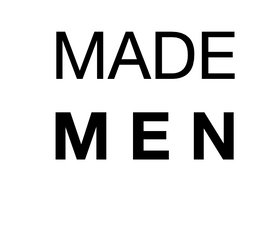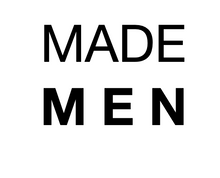Old Dutch Beard – Broad. Bold. Traditionally Masculine.
The Old Dutch Beard is a thick, block-shaped beard that covers the cheeks and chin without a moustache.
It’s similar to the Dutch Beard, but slightly shorter, squarer, and more structured – a beard that carries both history and masculinity in equal measure.
Originating in the 19th century, the Old Dutch was worn by pioneers, Amish men, and religious reformers – especially in the United States.
Today, it’s rare – but when done right, it’s a serious statement of character.
💥 Why Choose the Old Dutch?
-
Powerful appearance without a moustache
-
Focus on volume and width
-
Ideal for angular, narrow or long face shapes
-
Earthy, bold and grounded
-
High-maintenance – but unmistakably masculine
✂️ How to Style the Old Dutch Beard
1. Grow the cheeks and chin evenly
The upper lip must remain clean-shaven. The sides are where the volume happens.
🔗 Use: MADEMEN Shaving Gel
2. Define a block-like shape
Trim into a square or rectangular silhouette – almost like a beard “plate”.
🔗 Use: MADEMEN Beard Scissors
3. Apply beard oil for softness and moisture
Essential for comfort and health, especially with such density.
🔗 Use: MADEMEN Beard Oil
4. Comb daily with a wide-tooth comb
This maintains structure and prevents tangles.
🔗 Use: MADEMEN Beard Comb
🔧 Your Old Dutch Beard Routine
Daily:
-
Massage beard oil throughout
-
Brush with a comb to shape and smooth
-
Shave the moustache area
Weekly:
-
Wash with beard shampoo
-
Trim to maintain symmetry and block shape
-
Review overall volume and structure
🛠️ Tools for Your Old Dutch Beard
-
Shaving Gel – for a clean upper lip
-
Beard Oil – to soften and nourish thick hair
-
Beard Scissors – to keep the shape angular
-
Beard Comb – to control bulk and volume
❓FAQ – Old Dutch Beard Style
1. What’s the difference between the Old Dutch and Dutch Beard?
The Old Dutch is slightly shorter and squarer, with more emphasis on block-like structure. The Dutch Beard tends to be longer, fuller, and more naturally rounded.
2. Can I wear the Old Dutch in a modern setting?
Absolutely – when groomed properly, it delivers a rugged yet composed look that works in both casual and formal contexts. It adds a strong frame to narrow or long faces.
3. Is it hard to maintain the shape?
It does require effort – especially if your beard grows unevenly. Weekly trimming and daily combing are key to maintaining that signature blocky structure.










